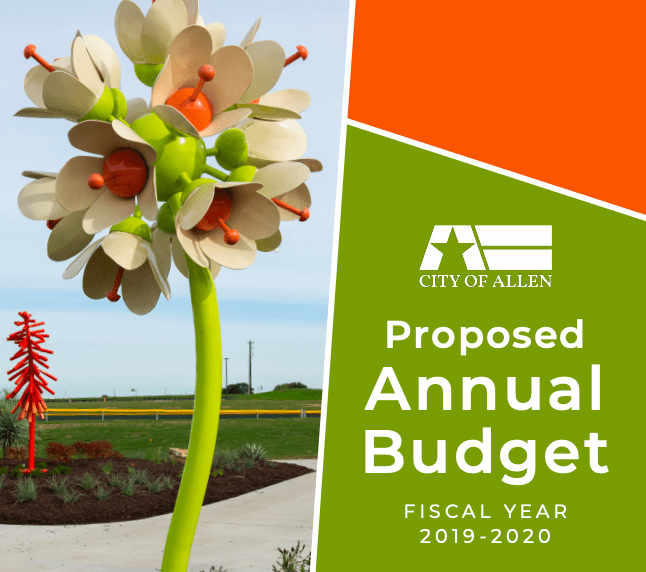Taxpayers in the City of Allen will once again see higher property tax bills, on average, even though the city is not raising the tax rate.
Over the past four years, the average Allen homeowner’s city property tax bill has increased by 28 percent. City council lowered tax rates in each of those years, but not enough to offset rising property values.
A preliminary 2019-20 budget presented by city staff to council members on Tuesday recommends a city property tax rate of $0.498 per $100 of assessed taxable valuation—the same rate charged in 2018-19.
That rate is about a penny higher than the “effective” tax rate of $0.4866—also called the “no-new-revenue” tax rate because it collects the same amount of property tax revenue overall from the same properties taxed the previous year. The taxpayer-friendly effective rate keeps homeowners’ city tax bills flat, in the aggregate, though individual taxpayers’ results vary based on valuations and exemptions.
At the proposed rate, the average Allen homeowner will pay $1,831 in city property taxes on a home valued at $367,638—an increase of $65 (3.7 percent) from the previous year.
The city anticipates collecting $72 million in property tax revenue. About $57 million will be spent on general operating expenses and $15 million on debt service. Ad valorem property taxes account for half the city’s general fund revenue. The biggest chunk of that revenue, 42 percent, is spent on public safety.
Allen’s tax base grew about 6 percent, driving the rise in tax collections. The city’s total assessed property value for 2019-20 is $14.46 billion, an increase of $864 million. About 57 percent of the increased tax base comes from growth—new property added to the city’s tax rolls—while the rest comes from higher overall appraised values of existing properties.
“Despite the unchanged rate, a combination of new taxable properties and increased appraisal values will increase the City’s total tax intake by $2,470,372 or 3.63%,” according to a public notice posted on the city’s website today.
Tax revenue collected from new properties is not included in calculating the rollback or “voter-approval” tax rate, currently set by state law at an 8 percent revenue increase. Neither is tax revenue collected to pay debt service.
Allen’s rollback rate this year is $0.517168, so the city will not need voters to approve the revenue increase.
Property tax reform passed by the state legislature this year, limiting cities to 3.5 percent operating tax revenue increases without a public vote, does not go into effect until 2020. That leaves Texas cities free to raise property tax revenues—and operating budgets—by up to 8 percent for one more year without voter approval.
Public hearings on Allen’s proposed budget and tax rate will be held on August 13 and 27. Allen City Council will vote to adopt a final budget and tax rate on September 10.






